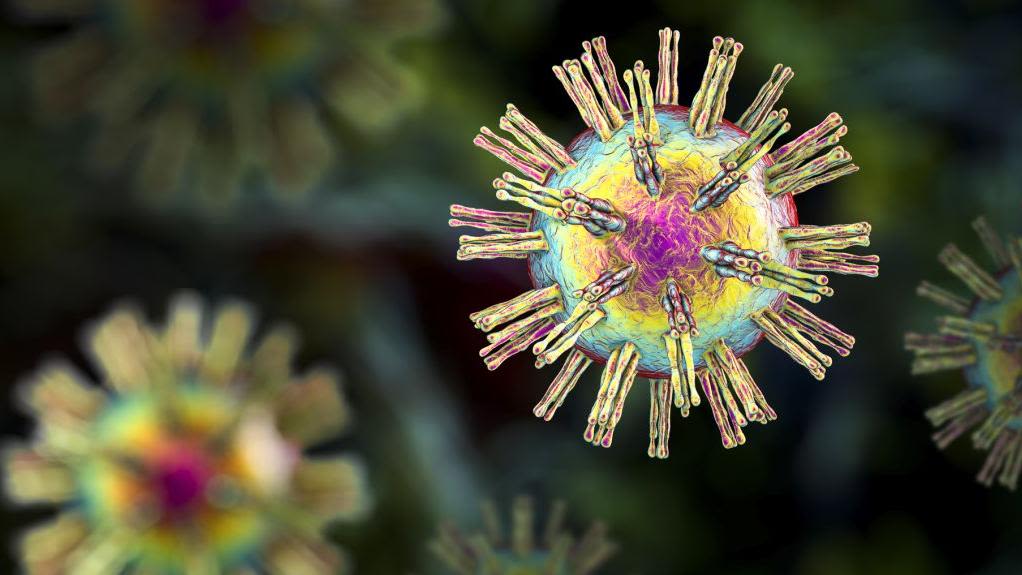

A new study suggests that repeated head injuries, such as concussions, a known risk factor for Alzheimer’s disease (AD), may reactivate a common dormant virus in the brain, increasing the risk of AD and other neurodegenerative conditions. Researchers found that even mild brain trauma can trigger this chain reaction, leading to harmful changes associated with memory loss and cognitive decline.
In previous studies, the researchers demonstrated the roles that common viruses, such as herpes simplex virus type 1 (HSV-1) (the so-called cold sore virus) and varicella zoster virus (VZV) (which causes chickenpox and shingles) play in the development of AD. HSV-1 can lie dormant in human cells for a lifetime, but when it re-awakens it can cause changes that resemble changes observed in AD patients’ brains – amyloid plaque-like formations (PLFs), gliosis, neuroinflammation, and decreased functionality.
In the latest study, published today in Science Signaling, the researchers once again used their small, 3D, bioengineered human brain tissue model to test the effects of physical trauma on the brain cells. When the brain tissues were exposed to repeated “mild blows,” similar to concussions, the previously dormant HSV-1 virus became active. This reactivation triggered inflammation, beta-amyloid plaque build-up, and the formation of harmful tau proteins, which can damage brain cells and impair memory.
Importantly, the researchers also found that blocking an inflammatory molecule called Interleukin-1 beta (IL-1β) prevented many of these harmful effects in lab models, opening the door to potential new treatments for those at risk.
Professor Ruth Itzhaki, who led the research with Drs Cairns and Kaplan at Tufts, has been researching the potential role of HSV-1 in AD for more than 30 years, beginning at the University of Manchester, where her team discovered HSV-1 DNA is present in the human brain in a high proportion of older people – the first microbe to be detected definitively in normal human brains.
more recommended stories
 Liquid Biopsy Measures Epigenetic Instability in Cancer
Liquid Biopsy Measures Epigenetic Instability in CancerKey Takeaways Johns Hopkins researchers developed.
 Human Antibody Drug Response Prediction Gets an Upgrade
Human Antibody Drug Response Prediction Gets an UpgradeKey Takeaways A new humanized antibody.
 Pancreatic Cancer Research: Triple-Drug Therapy Success
Pancreatic Cancer Research: Triple-Drug Therapy SuccessKey Summary Spanish researchers report complete.
 Immune Cell Epigenome Links Genetics and Life Experience
Immune Cell Epigenome Links Genetics and Life ExperienceKey Takeaway Summary Immune cell responses.
 Dietary Melatonin Linked to Depression Risk: New Study
Dietary Melatonin Linked to Depression Risk: New StudyKey Summary Cross-sectional analysis of 8,320.
 Chronic Pain Linked to CGIC Brain Circuit, Study Finds
Chronic Pain Linked to CGIC Brain Circuit, Study FindsKey Takeaways University of Colorado Boulder.
 New Insights Into Immune-Driven Heart Failure Progression
New Insights Into Immune-Driven Heart Failure ProgressionKey Highlights (Quick Summary) Progressive Heart.
 Microplastic Exposure and Parkinson’s Disease Risk
Microplastic Exposure and Parkinson’s Disease RiskKey Takeaways Microplastics and nanoplastics (MPs/NPs).
 Sickle Cell Gene Therapy Access Expands Globally
Sickle Cell Gene Therapy Access Expands GloballyKey Summary Caring Cross and Boston.
 Reducing Alcohol Consumption Could Lower Cancer Deaths
Reducing Alcohol Consumption Could Lower Cancer DeathsKey Takeaways (At a Glance) Long-term.

Leave a Comment